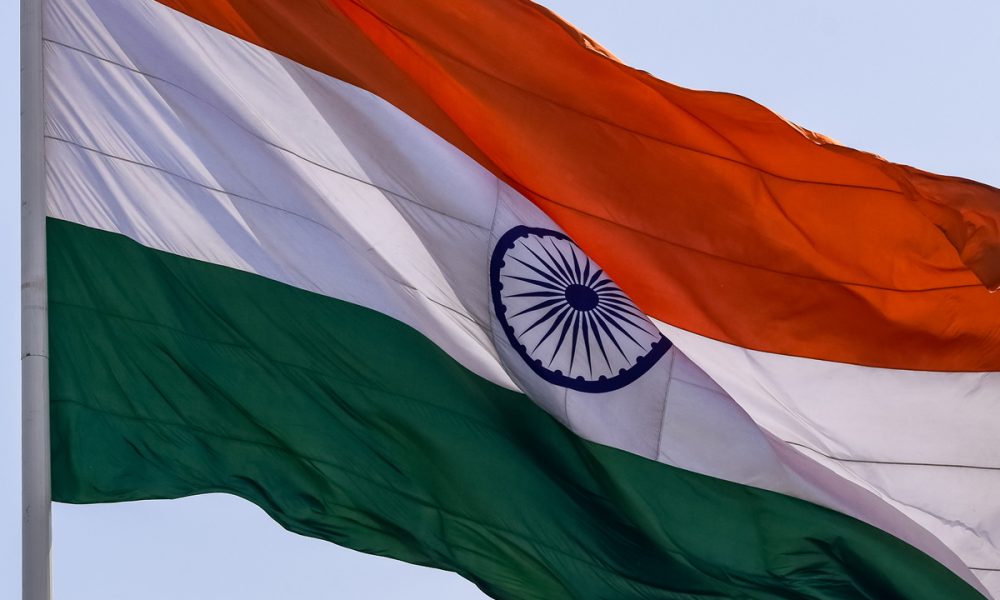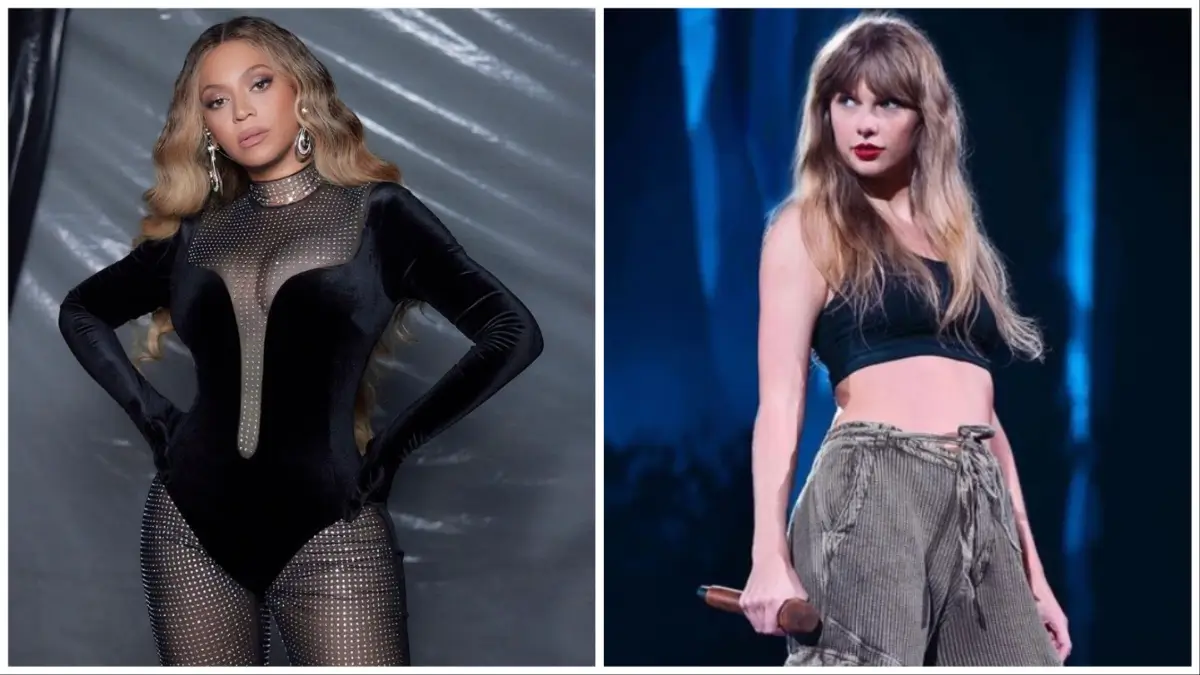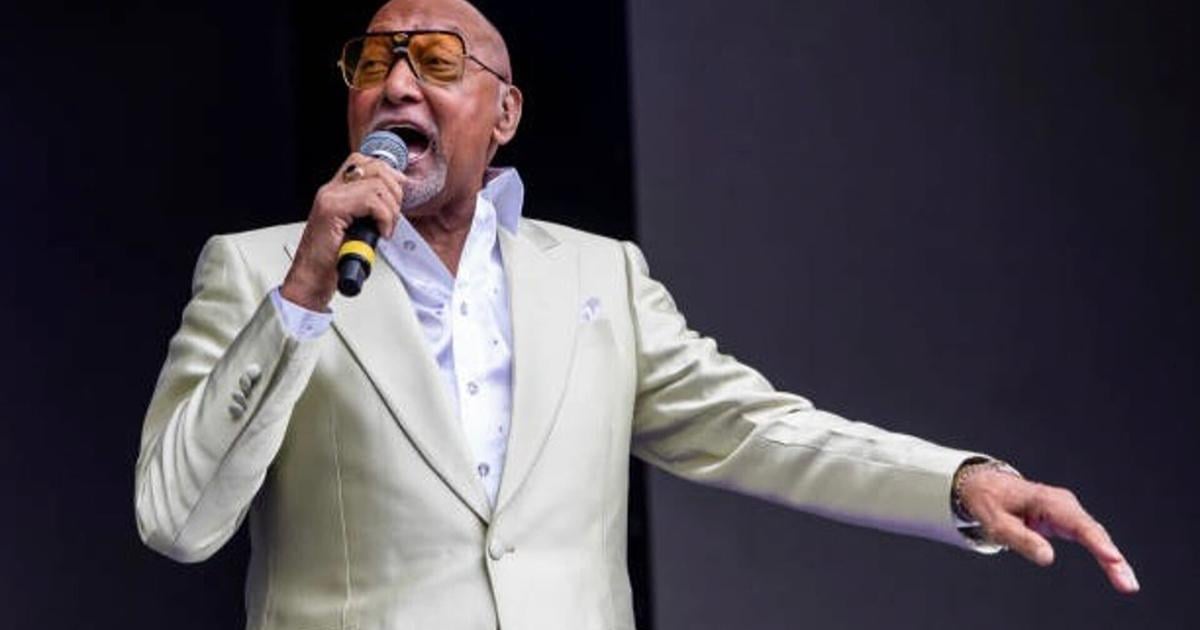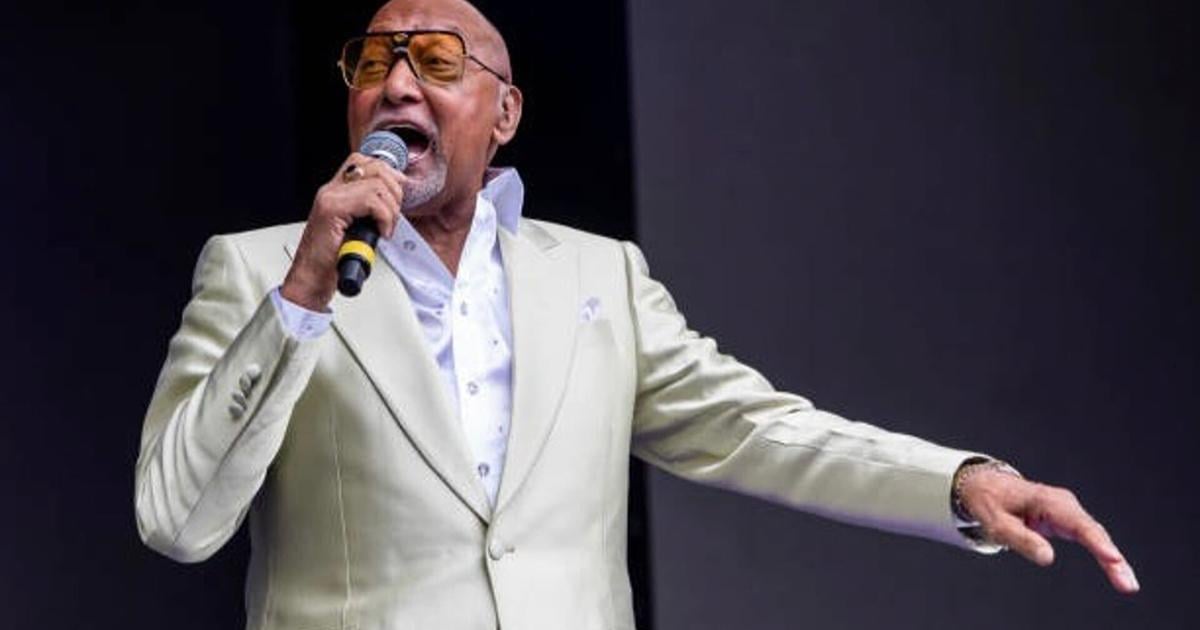NEW DELHI — New Delhi woke up to a frosty morning on Feb. 3. The air was crisp and biting, as a thick blanket of fog enveloped the surroundings in a ghostly haze. Amid this wintry scene, Tagore International School – Vasant Vihar bustled with life, its buildings standing strong against the chilly breeze while teachers hurried for an outdoor tour on the weekend.
In India traditions and customs sparkle like jewels in every corner. In the vast land, where old beliefs often hold strong, Tagore International School in South Delhi is a special place where something magical is happening. The school is becoming the beacon of inclusivity.
The Washington Blade visited the school and talked to the students, board members and its project coordinator.
While talking to the Blade, Vaanya Kalra, a 12th grade student at the school, said her parents are understanding and supportive. Vaanya, with a smile on her face, said she had free access to the internet when she was younger. It was during this time that she discovered a campaign called Breaking Barriers at her school that aims to support and raise awareness about LGBTQ+ rights.
“Breaking Barriers has existed for the past 10 years at my school, and I kind of always wanted to join it,” said Vaanya. “I did when I had the opportunity to join it.”
Vaanya, with a mixed feeling of sadness and anger in her eyes, opened up about her journey and said people were reacting differently to people who were different. Vaanya, who has always been an empathetic person, saw unnecessary hatred around gender and sexuality over the internet, and it became difficult for her to ignore it. She excitedly said she had time, energy and empathy and decided to join Breaking Barriers at her school.
Vaanya told the Blade she had the conversation with her friends and family before she joined the campaign. Her family was accepting of everything. She confidently shared that she enjoyed her journey in Breaking Barriers while supporting the LGBTQ+ community in her school and campaigning for it in other schools. Vaanya said she is considering higher studies in international relations.
While talking to the Blade, Vaanya expressed her extreme displeasure with an Indian news outlet for accusing Breaking Barriers members of ‘brainwashing children.’ She said that when she went online for a meeting on Breaking Barriers activities, random people took over the platform to dictate how wrong this campaign was.
“It was a very difficult journey,” said Vaanya.
Tagore International School Student Development Advisor Shivanee Sen joined the interview virtually from New York and discussed the campaign’s background.
She said Safina Ameen and Sohini Chakrabarti were student leaders and participated in the South Asia competition for an expansive school-wide social background and Shivanee chose to join the group. Sohini, Safina and Shivanee, at their young age, sat together and decided to work in gender space. While the discussion was going on, Shivanee suggested working in the field of gender and sexuality, and the other two happily agreed to work.
Shivanee said the initial group discussion was about working on women’s rights issue, but her idea was to work on other populations who suffer discrimination in India. Shivanee’s idea led the group of three young women to work on LGBTQ+ rights in India. Shivanee sent Sohini and Safina home for their parents’ consent and they luckily gave it. The group then started to work on LGBTQ+ rights at the school level.
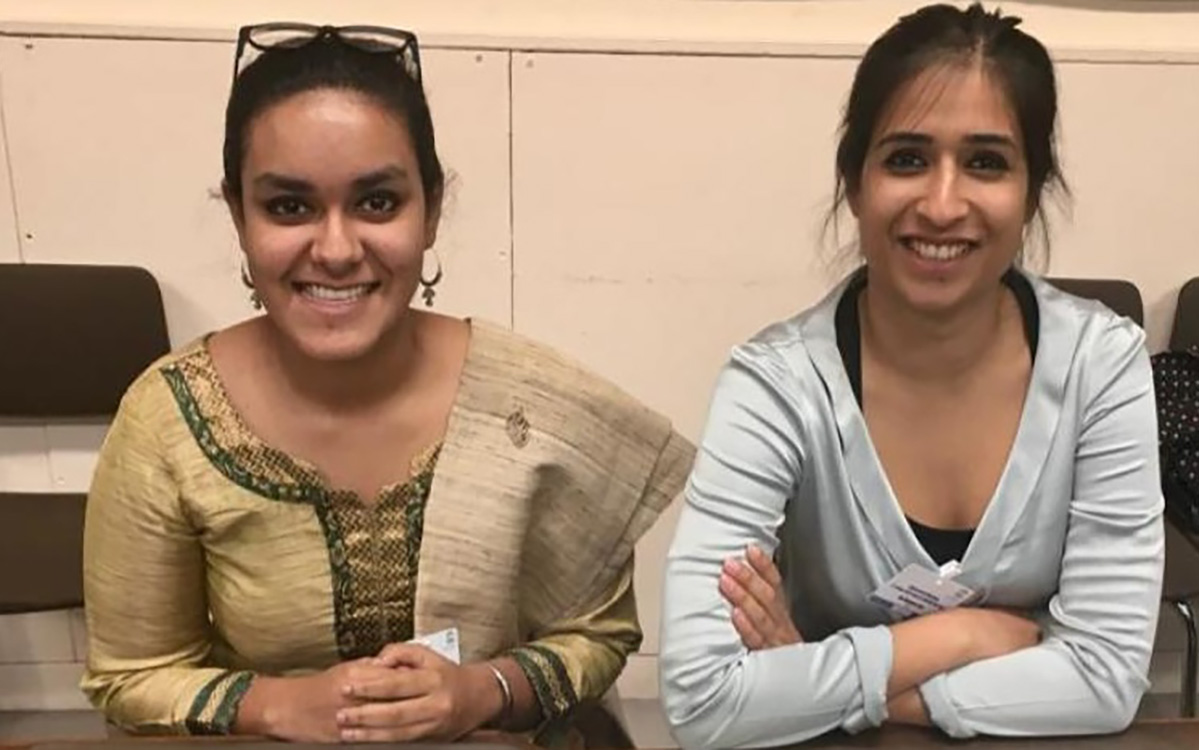
Sohini, one Breaking Barriers’s founders, said that there was an institutional void around this thematic area across schools in India.
“These things are not being discussed in schools. I was also 13 years old when we began. So as a young kid who was trained by professionals from NGOs, and because we were on the field working on gender rights at the same time, I was talking to students older than I was, and teachers about sexuality which was quite strange and jarring to some people to have like a school-wide campaign on this thematic, because of its central kind of overarching challenge,” said Siddhi Pal, one of Breaking Barriers’ original members. “It was really hard for us to take the campaign to different schools as our work was labeled as criminal, illegal and brainwashing. Those kind of things were a huge barrier, but apart from that we were so onboard. We pushed through it and made it work. But 10 years ago subject mattered the most as we were all kids.”
While answering what kind of resistance the campaign faced from the parents, Shivanee said not much because all members joined in with pre-parental consent. Shivanee further said that in the past 10 years, her Breaking Barriers campaign that supports the LGBTQ+ community at schools rarely faced parental resistance.
“I am quite surprised that in past 10 years we haven’t really had parental pushback,” she said. “They might not be okay with their kids joining the campaign, but no parent has taken it upon themselves to try and stop the workshops happening at school.”
Expressing concern about how an Indian news outlet published a homophobic article about Breaking Barriers and Tagore International School, Vaanya said with extreme confidence that when negative news about the campaign and the members, especially in a newspaper, comes out that means the campaign is making a change.
Siddhi joined the interview from London and said the biggest source of support is when new students enroll each year. That’s when they see what their peers are doing and that helped further inspire the campaign.
“What I have heard from others over the years, people actually aspire to join the campaign as they get into more leadership position,” said Sohini. “It’s interesting to see as it was hard to start it off, and there were lots of challenges in the beginning, not to say there are not now, but to keep it going has been easier because every year more students come in, there is more and more information about the campaign. So, to keep it going has been really amazing.”
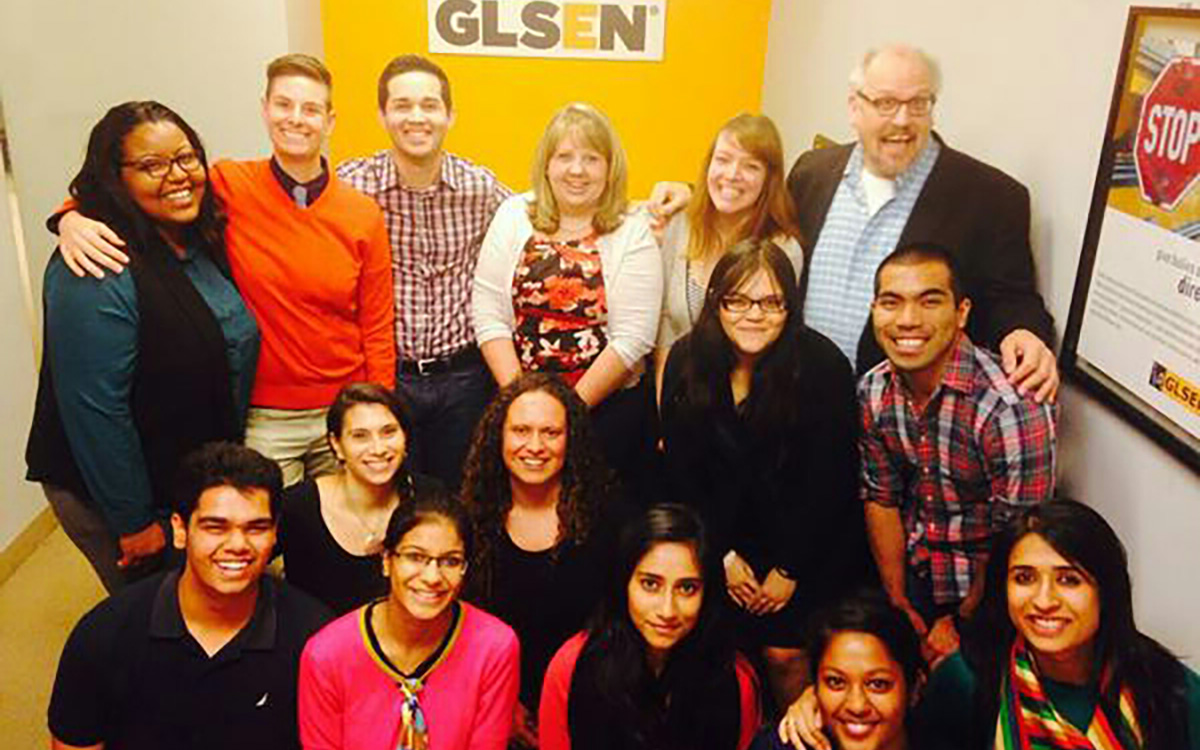
Tagore International School Project Coordinator Priyanka Randhawa told the Blade the campaign selects the office holders from ninth, 10th, 11th and 12th grades — its president or vice president typically comes from the older classes, while any interested students can join it. The Breaking Barriers team at the school is turning the campaign into a movement and taking sessions in other schools as well.
“We go to other schools and take up sensitive issues with them,” said Randhawa. “At the workshop, we show a presentation in other schools, and explain terminology related to Breaking Barriers, we share the stories of transgenders and we try to touch on emotional aspects also.”
“These workshops are meant for high school students only. We also do workshops for educators for sensitization,” added Randhawa. “We have also collaborated with NGOs like Naz Foundation, they train our students and sensitize on LGBTQ community.”
Priyanka said the campaign encourages other schools to start their own Breaking Barriers groups.
Jiya Chawla, a student at the Tagore International School and member of Breaking Barriers, told the Blade in New Delhi that she, along with Vaanya, joined the campaign four years ago.
“We have been to multiple schools. At least 20 schools offline and online we have been to more than 40 schools,” said Jiya. “We faced questions that were a homophobic point of view or a transphobic point of view. But we never said no you are wrong. We always take our time and try to understand where they are coming from. We try to break that stigma. We know that one session is not enough to break down generational prejudices, so we do face a lot of backlash sometimes, but social media has really come to our aid now. Because everybody is already aware of what this community is all about. So now, we don’t have to explain what the community is, but why equality is important.”
On the question of changing behavior outside the Breaking Barriers, Sohini told the Blade she expected the backlash and when she was going around campaigning for the LGBTQ+ community at Tagore International School in New Delhi. Her parents curiously asked her to do a presentation for them.
“It is a taboo topic, people don’t want to engage with you. But I was personally surprised by how curious people around me were,” said Siddhi with a big smile on her face. “My parents, once were like oh you are going around, doing this presentation, so why don’t you do it for us? I think that was one of the toughest initial presentations for me because you sit down with your parents and you go through talking about sex and sexuality.”
“It was really surprising in the beginning, even when we started doing presentations for teachers, I think teachers had a lot more questions than students in the beginning,” she added. “My friends were more willing to engage and then family, of course there are people who do not want to engage at all as well.”
A 15-year-old student at Delhi Public School in 2022 died by suicide after being bullied for his sexuality at school. The administration did not take any action, even though his mother filed a complaint.
Vaanya said it is important to create a safe space for students at school in order to adequately respond to these concerns. She said administrators and teachers were very supportive.
“Ensuring kids that it’s okay to feel different, it’s okay for you to have a different sexuality or act differently is very important. We have created a safe space, people understand that you do not have to bully others for it and they do not have to hate others for it,” said Vaanya. “Nobody is hating someone for this or actively bullying someone for this. We have a very strict anti-bullying policy as well, so we have managed to create a safe space for everybody.”
Ankush Kumar is a reporter who has covered many stories for Washington and Los Angeles Blades from Iran, India and Singapore. He recently reported for the Daily Beast. He can be reached at [email protected]. He is on Twitter at @mohitkopinion.


